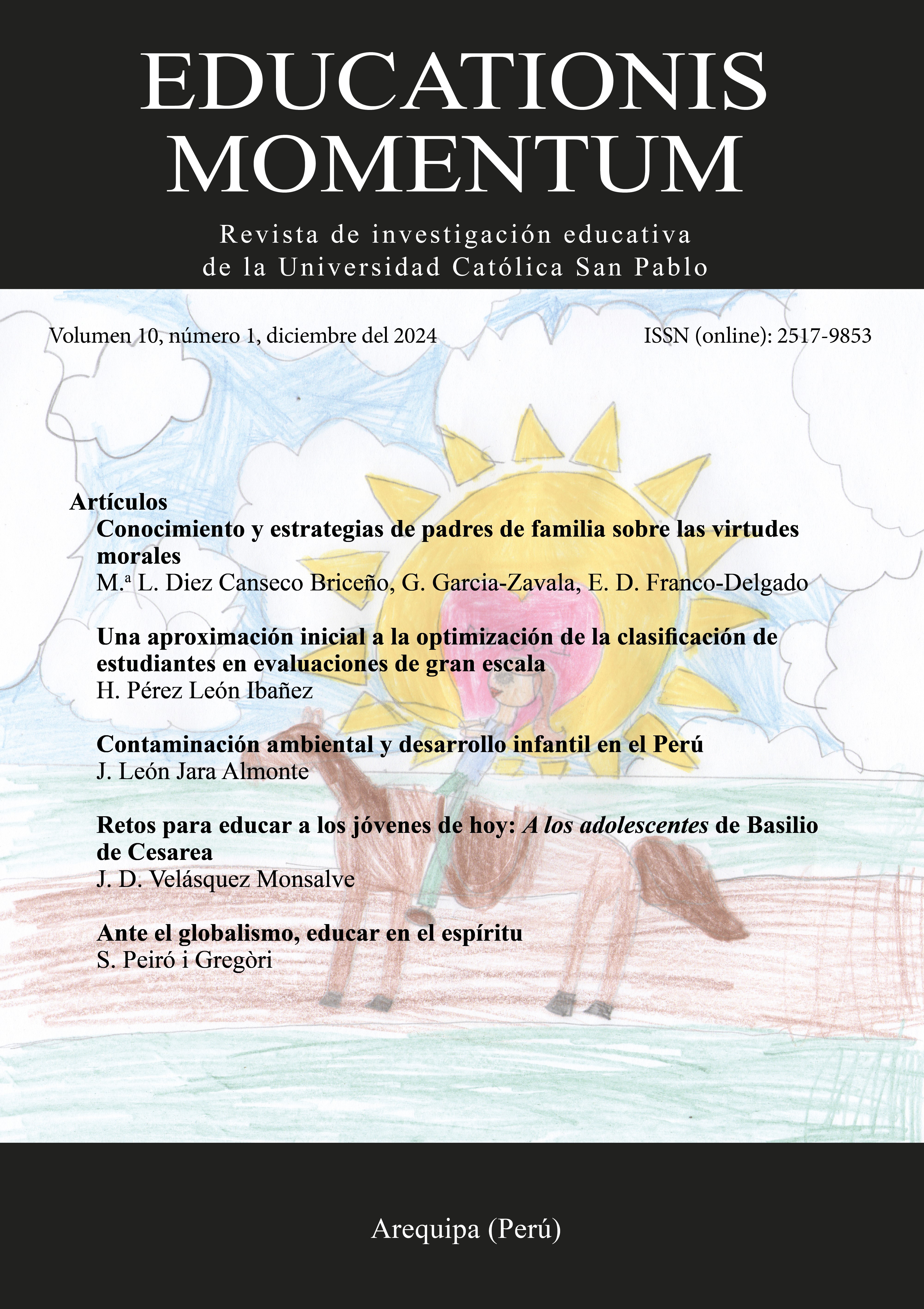Abstract
The education of young people has always been a challenge in every culture and moment in history in which humanity has needed to stop and reflect to fulfill its mission better. Saint Basil, bishop of Caesarea during the 4th century AD, felt committed to responding to how to educate and help young people encounter the truth of the Gospel, which he found to be an immense challenge. Around 370 AD, Saint Basil wrote Oratio ad Adolescentes, where he sought to advise young people to help them cultivate themselves better. In this work, Basil reminds young people about the end of education and how this end shows the path to follow. For the Cappadocian Father, the ultimate goal of education is closely related to the «preparation for the other life» (II, 2). Faced with this challenge, the path is marked by the need to follow a process that «trains the eye of the soul» (II, 7) and that helps «care of the soul» (II, 8) so that «the doctrine of good remains indelible» (II, 9). Saint Basil presents a way that attempts to start a dialogue between the Greek paideia and Christianity. This means exploring whatever helps the perfection of the soul and the achievement of virtue within the teachings of classical authors. While some Fathers rejected the possibility of conversing with the classical culture and philosophy, Basil claims searching and taking advantage of it in everything that can benefit young people's education. Faced with the challenges that today's world poses to educators, Basil of Caesarea helps us to reflect on the importance of having clarity about the end of education and the need to ensure the care of the soul of each young person that we help in their training, as well as the importance of the journey towards virtue.

This work is licensed under a Creative Commons Attribution-NonCommercial-NoDerivatives 4.0 International License.
Copyright (c) 2025 Juan D. Velásquez Monsalve


